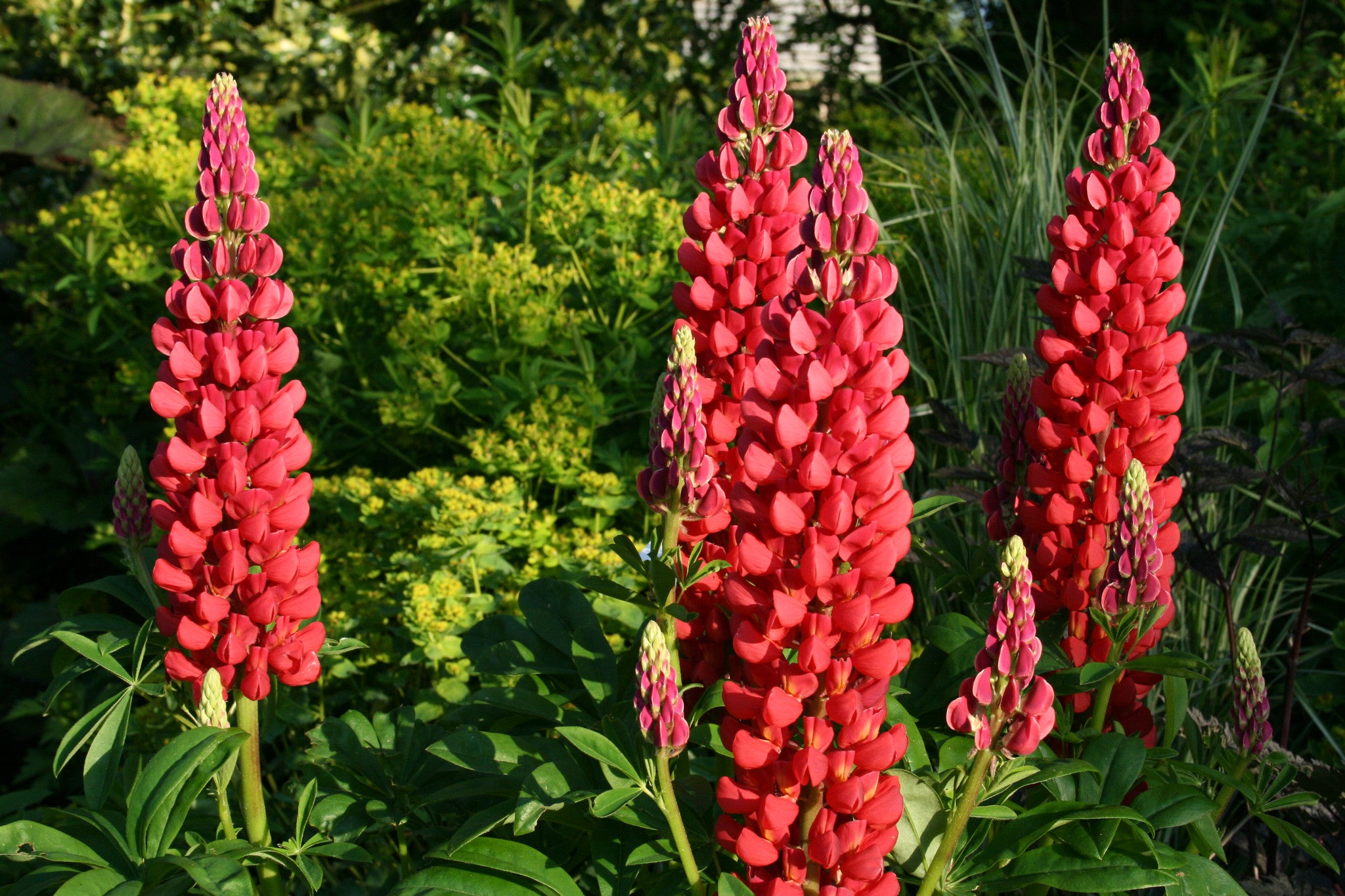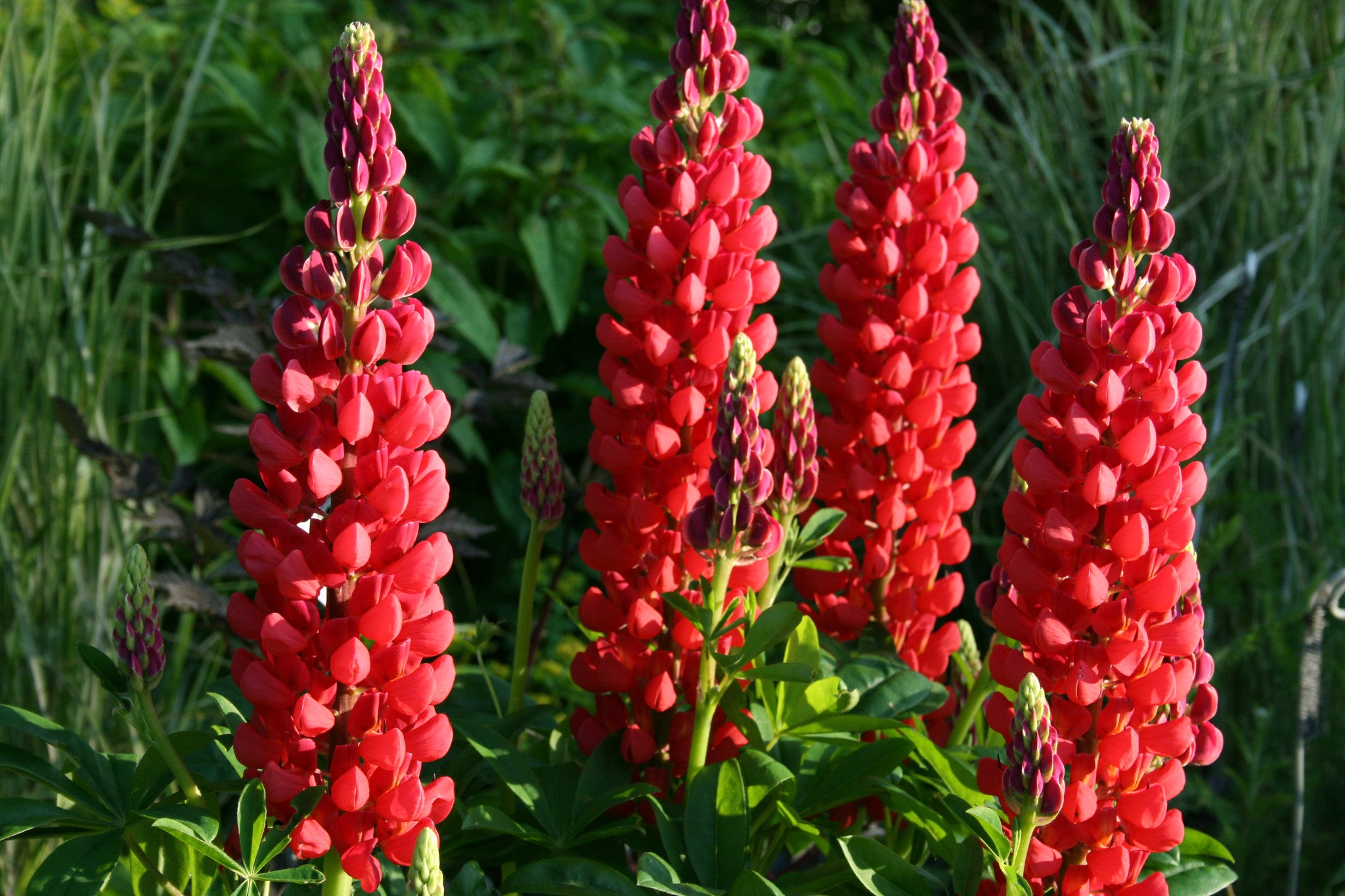Lupinus 'Sundown'
Approx. 0.5 litre pot
About this cultivar:
Lupinus 'Sundown' is a great Lupin in a fabulous red - we've had this one for over 20 years! Perhaps our favourite!
- Position: Full sun, partial shade
- Soil: Almost any soil, grows well in Ballyrobert
- Flowers: June, July
- Other features: -
- Hardiness: Fully hardy, grows well in Ballyrobert
- Habit: Clump forming, Columnar or Upright
- Foliage: Deciduous
- Height: 75 - 100 cm (2.5 - 3.3 ft)
- Spread: 50 - 75 cm (1.7 - 2.5 ft)
- Time to full growth: 2 to 5 years
- Plant type: Herbaceous Perennial
- Colour: Green, red
- Goes well with: Campanula, Geranium, Astrantia
About this genus:
Lupinus (lu-pe-nus) gets its name from the the latin for wolf (destroyer) because in some laces in can be invasive! (not so with us!). Commonly known as lupin or lupine , it is a genus of flowering plants in the legume family (Fabaceae). The genus includes over 200 species. Interestingly seeds of various species have been used as a food for over 3000 years around the Mediterrranean and for as much as 6000 years in the Andean highlands, but never have they been accorded the same status as soybeans or dry peas and other pulse crops.
The species are mostly herbaceous perennials, but some are annuals and a few are shrubs. An exception is Lupinus jaimehintoniana of Oaxaca in Mexico, which is a tree up to 8 m tall. Lupins have soft green to grey-green leaves which may be coated in silvery hairs, often densely so. The flowers are produced in dense or open whorls on an erect spike and the flower shape has inspired common names such as bluebonnets and quaker bonnets.
The Lupinus we grow and sell are well-behaved and beautiful. They will perform in full-sun to part shade in most soils that are not waterlogged. However they need a constant supply of water - in the nursery they are the first plants to wilt (often I just look to see if the Lupinus are wilting to see if the nursery needs the sprinklers turned on!). Note I said the nursery, our garden is almost never dry!
In our garden, most of the time we have them planted near Campanula, Astrantia or Geranium- but they look great in drifts with different coloured Lupins.




